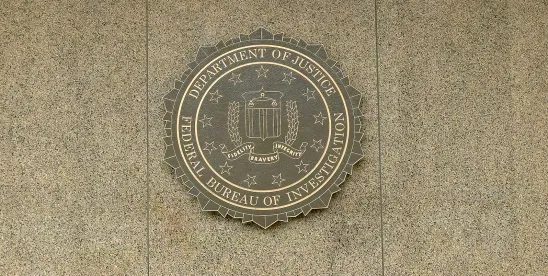On May 12, 2025, the Department of Justice’s (DOJ) Criminal Division issued a much-anticipated memorandum outlining its enforcement priorities and policies for prosecuting corporate and white-collar crimes. The memorandum, issued by Matthew R. Galeotti, Head of the Criminal Division, is a notable realignment of the Criminal Division’s priorities to promote policy goals of the Trump administration, including national security, foreign trade, and market integrity. It instructs prosecutors to “avoid overreach that punishes risk-taking and hinders innovation,” explaining that the Division’s policies are intended to “strike an appropriate balance between the need to effectively identify, investigate, and prosecute corporate and individuals’ criminal wrongdoing while minimizing unnecessary burdens on American enterprise.” The memorandum identifies the administration’s focus areas for white-collar criminal enforcement but also emphasizes its intent to reward corporate cooperation and remediation.
The DOJ’s Ten Focus Areas for Corporate Enforcement
The memorandum directs that the Criminal Division be “laser-focused on the most urgent criminal threats to the country,” seemingly suggesting that the DOJ’s focus during the prior administration was too broad. It identifies ten areas of focus that it asserts significantly impact the harms posed by white-collar crime:
1. Waste, fraud, and abuse, including health care fraud and federal program and procurement fraud that harm the public fisc;
2. Trade and customs fraud, including tariff evasion;
3. Fraud perpetrated through variable interest entities;[1]
4. Fraud that victimizes U.S. investors, individuals, and markets including, but not limited to, Ponzi schemes, investment fraud, elder fraud, servicemember fraud, and fraud that threatens the health and safety of consumers;
5. Conduct that threatens the country’s national security, including threats to the U.S. financial system by gatekeepers, such as financial institutions and their insiders that commit sanctions violations or enable transactions by cartels, transnational criminal organizations (TCOs), hostile nation-states, and/or foreign terrorist organizations;
6. Material support by corporations to foreign terrorist organizations, including recently designated cartels and TCOs;
7. Complex money laundering, including Chinese Money Laundering Organizations, and other organizations involved in laundering funds used in the manufacturing of illegal drugs;
8. Violations of the Controlled Substances Act and the Federal Food, Drug, and Cosmetic Act (FDCA), including the unlawful manufacture and distribution of chemicals and equipment used to create counterfeit pills laced with fentanyl and unlawful distribution of opioids by medical professionals and companies;
9. Bribery and associated money laundering that impact U.S. national interests, undermine U.S. national security, harm the competitiveness of U.S. businesses, and enrich foreign corrupt officials; and
10. As provided by an April 7, 2025 memorandum from the Deputy Attorney General: crimes (1) involving digital assets that victimize investors and consumers; (2) that use digital assets in furtherance of other criminal conduct; and (3) willful violations that facilitate significant criminal activity. Cases impacting victims, involving cartels, TCOs, or terrorist groups, or facilitating drug money laundering or sanctions evasion shall receive the highest priority.
The memorandum also emphasizes that Criminal Division prosecutors will “prioritize efforts to identify and seize assets that are the proceeds of, or involved in, such offenses and, where authorized under law, use forfeited assets to compensate victims of these offenses.”
Revisions to Corporate Enforcement and Voluntary Self-Disclosure Policies
Mr. Galeotti also directed amendments to several corporate enforcement policies. Specifically, the DOJ clarified and enhanced the benefits available to companies that voluntarily self-report, tightened its monitor selection policy, and added four priority areas to its recently announced whistleblower program.
Although the Criminal Division’s Corporate Enforcement and Voluntary Self-Disclosure Policy (CEP) has been applied across the Division since 2018, Mr. Galeotti has directed several significant changes. First, the memorandum states that companies that self-disclose will be entitled to a declination, as opposed to a presumption of a declination. In other words, companies that satisfy the requirements of the CEP (voluntary self-disclosure, full cooperation, and timely remediation without aggravating circumstances) will not be required to enter into a criminal resolution.
The memorandum also directs the Criminal Division’s Fraud Section and the Money Laundering and Asset Recovery Section to “revise the CEP and clarify that additional benefits are available to companies that self-disclose and cooperate, including potential shorter terms.” The memorandum notes that “[i]t is individuals—whether executives, officers, or employees of companies—who commit these crimes, often at the expense of shareholders, workers, and American investors and consumers.” The memorandum also instructs that agreements with companies that cooperate and remediate should last for an appropriate term as necessary but should not be longer than three years “except in exceedingly rare cases.” The memorandum directs the Fraud Section and the Money Laundering and Asset Recovery Section to review the terms of all existing agreements with companies to determine if they should be terminated early.
The memorandum emphasizes its goal of streamlining corporate investigations, which it notes can be “costly and intrusive for businesses, investors, and other stakeholders” and “significantly interfere with day-to-day business operations and cause reputational harm that may at times be unwarranted.” The memorandum, therefore, directs prosecutors to “move expeditiously” when investigating cases and making charging decisions. The DOJ will track investigations to ensure they “do not linger and are swiftly concluded.”
Finally, the memorandum announced an individualized review of all existing independent compliance monitorships and instructed the narrowly tailored use of monitors. Mr. Galleoti announced a new monitor selection memorandum intended to (1) “clarif[y] the factors that prosecutors must consider when determining whether a monitor is appropriate and how those factors should be applied; and (2) ensur[e] that when a monitor is necessary, prosecutors narrowly tailor and scope the monitor’s review and mandate to address the risk of recurrence of the underlying criminal conduct and to reduce unnecessary costs.”
Conclusion
There has been much speculation about how the Trump administration would approach white-collar criminal enforcement while increasing enforcement of immigration and other criminal statutes. The DOJ memo appears to reaffirm a commitment to corporate criminal enforcement and prosecution consistent with the administration’s priorities. We expect the DOJ to continue its focus on fraud, waste, and abuse, specifically concerning health care fraud, federal program fraud, procurement fraud, trade and customs fraud (including tariff evasion), and violations of the FDCA, specifically including the manufacture and distribution of materials used to manufacture fentanyl and other unlawful opioids.
Endnotes
1. The memorandum describes variable interest entities as “typically Chinese-affiliated companies listed on the U.S. exchanges that carry significant risks to the investing public[.]”




 />i
/>i

